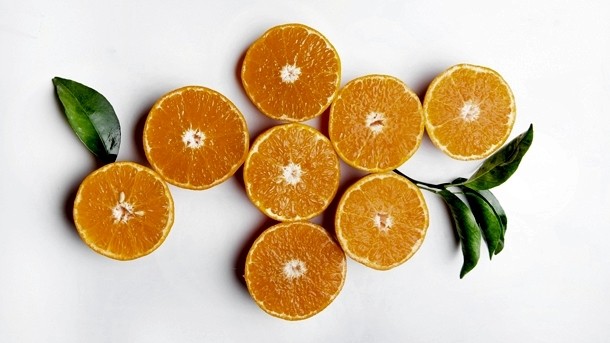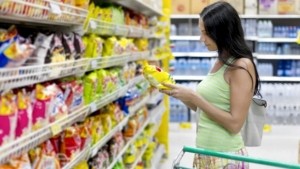Dateline Southeast Asia
Australia sets sights on Southeast Asian fruit markets

Austrade has embarked on a series of campaigns, including the “Australia Now! In Season” multi-country promotional programme, which has been designed to raise awareness of the country’s “safe and healthy” fruit.
It focuses on promoting fresh Australian produce as it comes into season, beginning with summer fruits including grapes, then pears, apples, navels and mandarins as the seasons progress.
Stuart Rees, Austrade’s trade commissioner for Bangkok, said Australian fresh fruit has been enjoying rapid market growth due to increasing demand from Thailand’s retail, food service and manufacturing sectors.
“This is because Thailand is Southeast Asia’s food manufacturing hub, catering to both domestic and international markets. It is also underpinned by changing consumer patterns and the increasing income levels of Thai consumers,” Rees said.
“Thai consumers also have a heightened awareness of food safety issues. Australia is seen as a ‘clean, green and safe’ supplier, offering better-quality and tasting produce when compared to imported products from other countries.
While Thais have been particularly receptive to Australian table grapes, summer fruit, apples and pears, mandarins in particular have seen a growth in popularity.
Australian Honey Murcott mandarins have become highly regarded because of their vibrant colour, long shelf-life and high sugar content with well-balanced acidity, Rees said.
While China remains Australia’s biggest destination for mandarins by value, Thailand is now its biggest export market by trade volume. Some 7.8 tonnes of mandarins were exported last year, an increase of nearly 25% over the previous year, according to the Australian Bureau of Statistics.
Local retailers are reporting strong sales and predict growth of 40% during the Australia Now! campaign, which coincides with key Chinese Lunar events celebrated in Thailand.
During the Hungry Ghost Festival, Thai-Chinese descendants purchase mandarins due to their golden colour, and offer them during prayers to spirits and ancestors. During the 10-day Vegetarian Festival, the community abstains from eating meat and instead purchases fresh produce, particularly mandarins, in greater volumes.
Rees said that tandem initiatives, including an Austrade-AusVeg Thai buyers visit to Australia, have collectively resulted in more leading retailers actively seeking Australian produce to sell in their stores.
A Thailand-Australia free-trade agreement has also provided Australian exporters with a competitive advantage over other countries, as it has eliminated import duties for many fresh produce items since 2015.
More from Southeast Asia…
Don’t scrap SRP for the sake of the poor, says Filipino lawmaker
A proposal to scrap suggested retail prices for basic goods in the Philippines would hit the poorest hardest.
Lawmaker Ariel Casilao said “unlimited price hikes” would ensue if the suggestion by the Department of Trade and Industry were approved.
Currently, the Price Act provides for suggested retail prices to be printed on consumer product packaging. If this were to be taken away, the poor “could not even afford the most basic of the basic goods, such as food,” Casilao, an Anakpawis party-list representative, said.
The move would result in price rises in goods including rice, meat, fish, vegetables and manufactured goods such as canned fish, milk and coffee.
Casilao said that the proposal had been issued because trade and industry secretary Ramon Lopez is known to be keen to allow manufacturers to dictate their own retail prices.
Officials in the Rodrigo Duterte government “do not believe that a majority of the people are already in abject poverty and misery”, and demand is generally always higher than supply in the as the country has limited food manufacturing, he added.
The representative also cited instances from Europe in the mid-nineteenth century when civil unrest was sparked by increases in the price of bread.
“We are confident that the President clearly knows history, as food price hikes build up people’s revolutions,” Casilao said.
Meanwhile, the Philippines finance secretary has defended his government’s proposal to impose an excise tax on sugar-sweetened beverages.
Carlos Dominguez said the proposed tax had been intended to discourage the public from consuming unhealthy products.
“You know, too much sugar is bad for you. So, if the consumption—excessive consumption of sugar goes down, your health will be better,” he said.
“It’s not to make people starve. It’s to make it more expensive to consume foods that are not good for your health so that you will change your diet to healthy foods.”
Under the government’s tax reform package, which was passed by the House of Representatives at the end of May, an excise tax of PHP10 (US$0.20) is in line to be introduced on sweetened juice drinks, tea and coffee and carbonated beverages, including those with caloric and noncaloric sweeteners.
A similar tax could also be imposed on flavoured water, energy drinks and other non-alcoholic beverages that contain added sugar, and caloric and artificial sweeteners.













